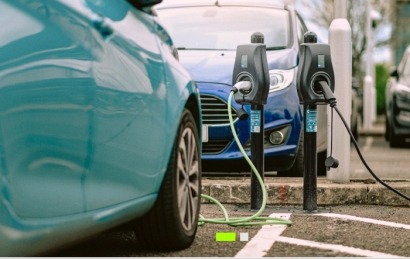
The rollout, set to begin in April, will see the majority of Connected Kerb's charge points – 6,000 already installed and 4,000 to be deployed this year - activated to be capable of smart charging by 2025, acting as a blueprint for the UK's rollout of public smart charging.
Connected Kerb's new public smart charging offering will see lower overnight tariffs of £0.45 per kWh for drivers, extending the full benefits of smart charging to everyone. Thanks to the lower costs, drivers could save up to £222 per year on charging, the equivalent of 495 free EV miles.
Until now, 62% of drivers without access to home charging have not been able to benefit from lower electricity tariffs at off-peak times. Connected Kerb's smart charging rollout will make these significant cost savings possible across its public charging network for the first time.
Ben Boutcher-West, Chief Digital Officer at Connected Kerb, said, "Public smart charging is the catalyst we need to create a fairer, greener, and cheaper charging network. We know that just under two thirds of people in the UK don't have access to a home charger, which is why we're committed to levelling the playing field between those who can access smart charging and those who can't.
"By increasing the speed of charging when energy is cheapest, we can now offer drivers lower-cost tariffs, maximize the use of green energy and take strain off the grid. Our rollout of public smart charging isn't just a major milestone for Connected Kerb, but the UK's EV transition as a whole, bringing our public charging network one stop closer to democratizing the gap between those with and without off-street parking."
To accelerate the UK's shift to electric vehicles at the pace required to address the UK's transport emissions, tackling the inequities among drivers remains essential. By making smart charging publicly accessible, Connected Kerb's rollout will play a fundamental role in addressing this imbalance.
The first areas to benefit from Connected Kerb's smart charging rollout will be the regions of West Sussex, Lincoln, Scarborough, Ryedale, and Sunderland.
Joy Dennis, Cabinet Member for Highways and Transport at West Sussex County Council said, "All of our residents - whether they have a driveway or not - deserve access to the significant cost savings associated with smart electric vehicle charging. As EV adoption grows across the country, we're committed to ensuring West Sussex is a leader in the provision of intelligent charging infrastructure.
"This rollout is a genuine step towards a more equitable and sustainable charging system for West Sussex. Our agreement with Connected Kerb to launch smart charging capability across the county will act as a roadmap for other councils, increasing access to smart charging for all."
Drivers can benefit most from Connected Kerb's smart charging capabilities by scheduling a charge from 7 p.m. onward, any day of the week through the company's app. Once plugged in and scheduled, charging will begin at midnight and carry on until 7 a.m. or until the EV battery is fully charged.
The benefits of reduced energy prices between these hours are directly passed onto the user through a reduced tariff of £0.45 per kWh, 22.4% lower than the average rate of the UK's fast (7-22kW AC) charging network, providing considerable cost savings for users.
Anthony Browne, Minister for Technology and Decarbonization, said, "We want people to be able to charge their EV in a way that works for them, so it's great to see public smart charging providing opportunities for drivers to save money."
Smart charging on Connected Kerb's network will be available to users through its newly launched mobile application, enabling the quick, easy, and convenient setup of overnight charging. The updated app features session tracking, providing users with live updates, so drivers can keep tabs on their charging remotely.
The network-wide rollout of smart charging comes after Connected Kerb's government-backed trial of public smart charging, Agile Streets, which revealed that peak energy demand could be cut by 240MW by 2030, the equivalent to boiling over 1.4m kettles. Reduction in peak demand for electricity directly reduces the use of fossil fuels to generate energy.
This announcement follows the recent news of Connected Kerb's partnership with South Tyneside Council, with plans to more than double the number of public charge points in the North East. Marking the single largest rollout of chargers in the North of England to date, the partnership will see up to 2,100 charge points installed, providing a major boost to the UK's target of 300,000 charge points by 2030.

